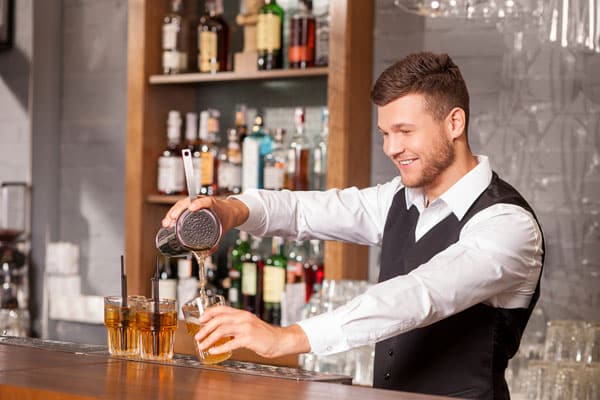How Bartenders Ensure Compliance with Alcohol Laws and Regulations
Serving and mixing drinks is just one aspect of being a bartender; another is being accountable for making sure that alcohol laws and regulations are followed. In order to encourage safe and responsible alcohol usage, bartenders are essential in enforcing the state-specific alcohol laws that apply in the United States. This article will discuss how bartenders comply with alcohol legislation.

Education and Training
Education and training are two essential ways bartenders make sure alcohol regulations are followed. Bartenders must take responsible beverage service courses in several states. These seminars train bartenders on alcohol laws, including ID checks, intoxication indicators, and drinking limits.
Floridian bartenders get extensive instruction on state alcohol rules and regulations via the Florida Bartending Certification. Bartenders who get this certification will be better prepared to serve alcohol safely while adhering to Florida's legal requirements.
Checking Identification
Validating the age of customers by examining their identity is an essential component of bartenders' compliance activities. This action is necessary to stop underage drinking, which is a major infraction of alcohol regulations. Serving alcoholic drinks to customers who are not of legal drinking age requires vigilance on the part of bartenders.
Monitoring Patron Intoxication
Bartenders are also in charge of keeping an eye on customers' degrees of drunkenness. In addition to being illegal, overserving alcohol to those who are obviously drunk puts customers' safety and wellbeing at serious jeopardy. Bartenders are instructed to reject service to intoxicated customers with slurred speech, poor coordination, and violent conduct.
Turning Off Customers Appropriately
When a customer has had enough, a bartender must responsibly stop serving alcohol. This might include making sure the customer has a safe way to go home and providing non-alcoholic options like water or soft drinks. Bartenders are in charge of stopping instances involving intoxicated driving and other alcohol-related problems.
Record Keeping and Reporting
Bartenders also comply with alcohol rules by keeping proper sales and incident records. Bartenders help pubs and restaurants monitor alcohol inventory and sales records in several states. They must also report issues like altercations and underage drinking to management and police enforcement.
Staying Informed About Changes in the Law
Since alcohol laws and regulations are subject to change, bartenders must keep up to current on any adjustments or revisions. Attending training events, reading legal updates, or joining industry organizations that give regulatory updates may help.
Conclusion
To provide a secure and pleasurable atmosphere for customers, bartenders have a big duty for making sure that alcohol laws and regulations are followed. In order to properly manage the unique alcohol rules and regulations of the state of Florida, bartenders must first get a Florida Bartending Certification. Bartenders support the responsible and lawful use of alcoholic drinks in their businesses by abiding by these rules and always aiming for compliance.
Post Your Ad Here
Comments